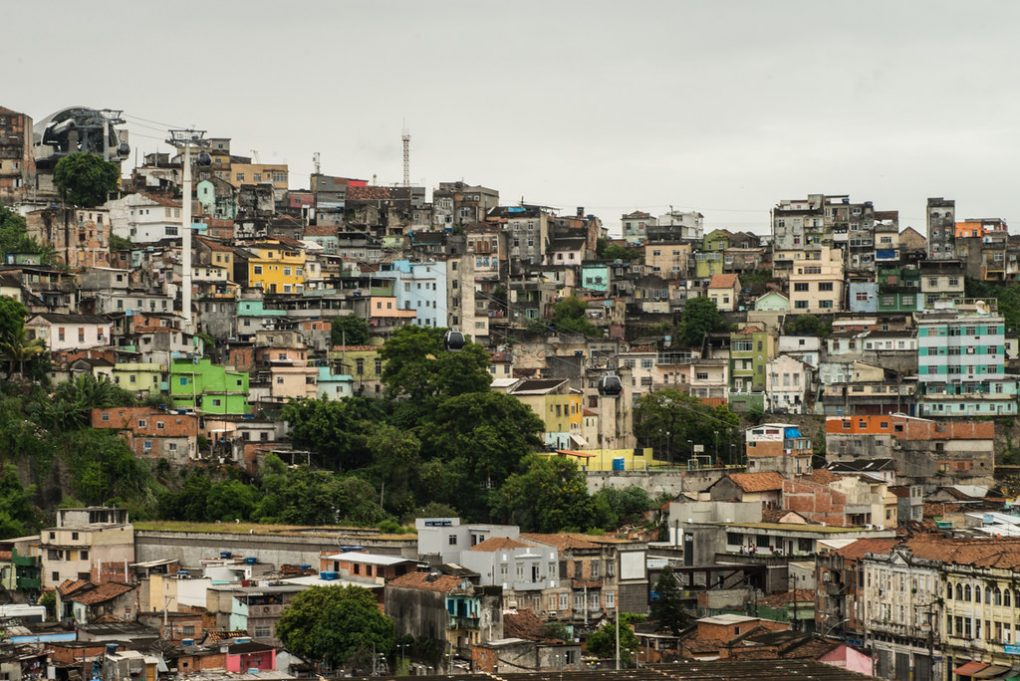The EUROsociAL+ Democratic Governance policy area at FIIAPP co-organised an online conference in which it shared its experience with the territorial development work axis and mobilised the expertise of Fundación Secretariado Gitano in Spain.

Human settlement in Latin America
In recent years, international agendas, such as the United Nations Sustainable Development Goals and the New Urban Agenda, have renewed the commitment of the region’s countries to implementing effective and definitive solutions to the housing problem. The COVID-19 pandemic reminds us once again that these agendas are urgent and remain absolutely relevant.
In addition to the challenges posed by the lack of social inclusion, vulnerability to natural disasters and the lack of economic opportunities and competitiveness, the effects of the crisis unleashed by the COVID-19 pandemic pose added difficulty.
Facing the pandemic makes learning between organisations imperative, as well as promoting strategic alliances to protect and care for the lives of the entire population, and especially those exposed to structural vulnerability.
In this context, the European Union Programme for Social Cohesion in Latin America -EUROsociAL+, the Urban Housing Practitioners Hub (UHPH), Cities Alliance, UN Habitat, the Economic Commission for Latin America and the Caribbean (ECLAC), the RIVHA Housing and Habitat Researchers Network in the Americas and the Secretariat of Central American Social Integration (SISCA) as well as the Secretariat of the Council of Central American Social Integration (CCVAH) developed the Laboratory on Housing “Precarious Settlements and Social Housing: Covid-19 Impacts and Responses ”. This was undertaken in order to identify responses to the crisis and emergency created by the pandemic and collect inputs for public action in precarious settlements in Central America and for social housing policy, with the perspective of promoting a structural change in the context of inequalities and segregation in cities.
“This pandemic has highlighted the importance of social cohesion in Latin American countries. Urban development and the urban agenda should be at the forefront of the public policy agenda”, said Sonia González, coordinator of the EUROsociAL+ Governance policy area at FIIAPP.
The crisis caused by COVID-19 has displaced economic and social systems on a global scale, making it clear that the response must be coordinated, serving all sectors of the population. Only in this way can we build a viable and resilient way out for this phase of the pandemic.
Central America and the Dominican Republic
There is a significant housing deficit in Central American countries that contributes to the formation of informal settlements, which house approximately 29% of the urban population. In the case of Guatemala and Nicaragua, the percentages are 39% and 45%, respectively. These settlements tend to be located in areas at risk of floods, landslides and earthquakes. Likewise, 3 out of 10 homes are in high risk areas, and of the 11.3 million homes estimated in 2009, 37% had some type of qualitative deficit. The demand for quality housing increases significantly because it is estimated that 290,000 households are created annually.
“The economic consequences of the COVID-19 pandemic implies loss of income and inability to pay rent for the majority of the most vulnerable population. It is essential to create resilience, with housing as the central pillar, and as a human right”, said Alfredo Suárez Mieses, Secretary General of SISCA.
In the face of the emergency, it becomes imperative to plan the actions to be carried out immediately after the health crisis is overcome. While there will be great pressure on policy makers to implement actions that reverse the decline in economic activity and employment, it is no less true that future measures should focus on the most affected areas, which are none other than the largest cities. Of course, these actions will depend on the existing fiscal space. However, one would not be mistaken to think that the way to reactivate the economy and generate employment will be through a paradigm shift in the construction of infrastructure, housing programmes and comprehensive urban development, that incorporates the issues of sustainability, inclusion and resilience. Likewise, they must contemplate innovative financing mechanisms framed in policies that facilitate and guide public and private investments and that focus on the needs of people and territories – with their assets and weaknesses.
“The already existing overcrowding, where there is a lack of basic health services, is where the impacts of this crisis are likely to be greatest”, said Sergio Amaya, National Commissioner for Housing in Honduras and President Pro Tempore of the CCVAH.
Therefore, it is essential for local governments to base preparation and early action on existing risk and disaster prevention and care systems. Nevertheless, the settlements and neighbourhoods in precarious conditions are highly heterogeneous depending on their levels of consolidation, morphologies, geographic location, and levels of social organisation. Thus, the levels of criticality in overcrowded conditions, quality of housing, proximity to health services, access to sanitation infrastructure, and socio-economic levels, should be evaluated to design a response adapted to the particular conditions in each location. Coordinated differential response actions to prevent mortality in the pandemic must, therefore, be framed as a key stepping stone to comprehensive neighbourhood improvement for recovery.
“From UN-Habitat we support regional collaborative work and we have decided to focus our action to support national and local governments around the issue of slums, so as not to leave anyone behind in the fight against COVID19”, said Elkin Velásquez, Director UN Habitat Regional.
The complexity in dealing with the pandemic lies in the multiple vulnerabilities that must be addressed simultaneously at multiple scales. All of them are exacerbated in neighbourhoods and precarious housing settlements.
Quickly seeking effective solutions to mitigate the contagion, preserve the lives of individuals and groups, and ensure the functioning of the basic socio-economic dynamics of our communities must be the priority, ensuring that no social group is left behind. In this sense, decisions informed by evidence and epidemiological and socioeconomic considerations are fundamental and constitute the greatest challenge of public policy and action.
Source: SISCA / SICA



